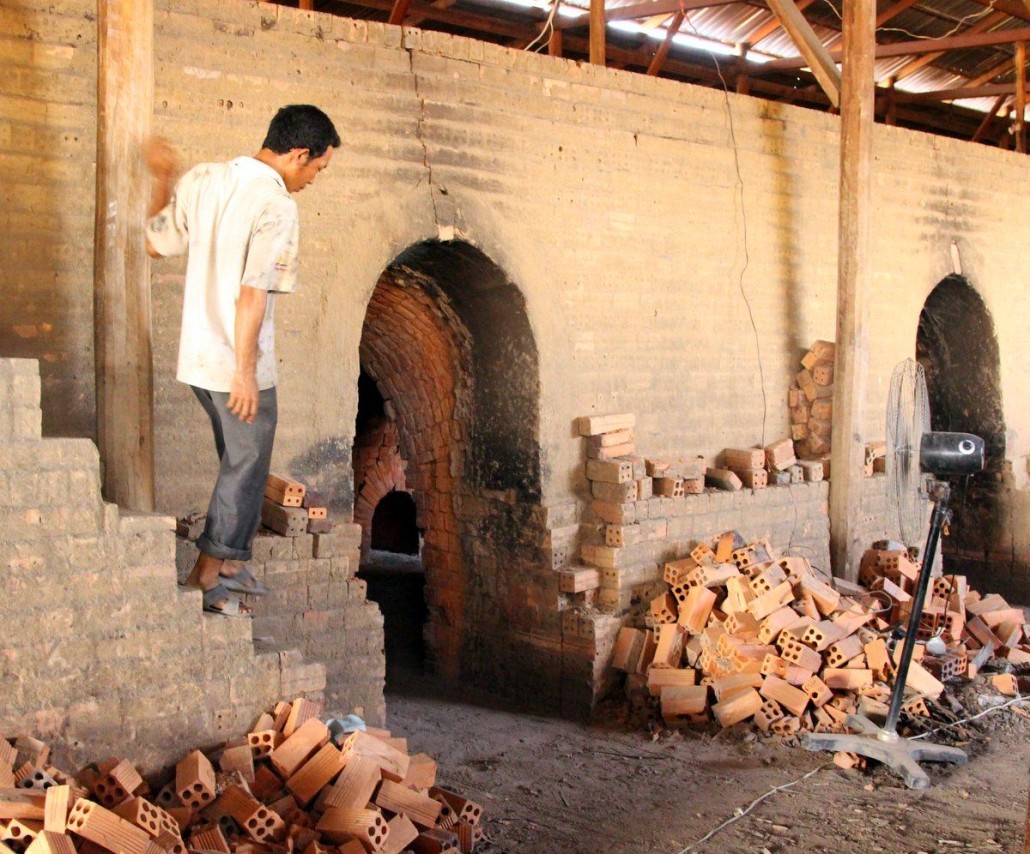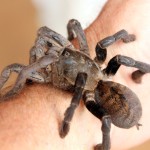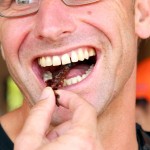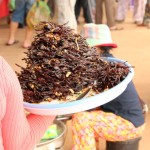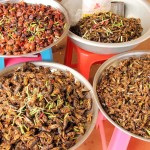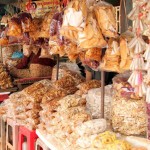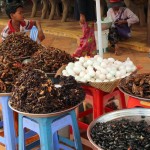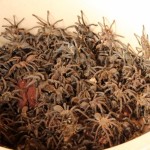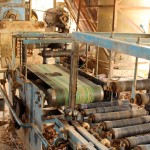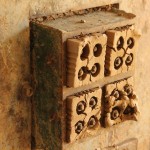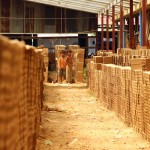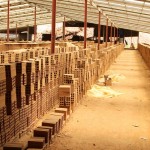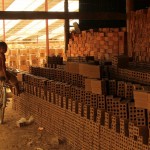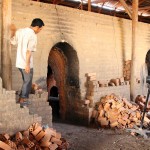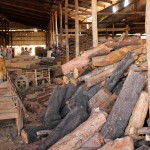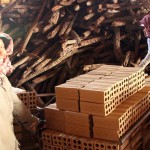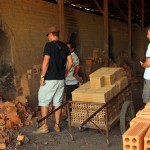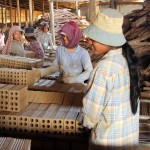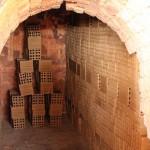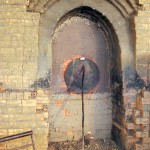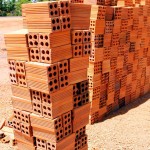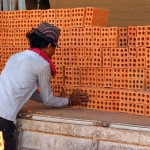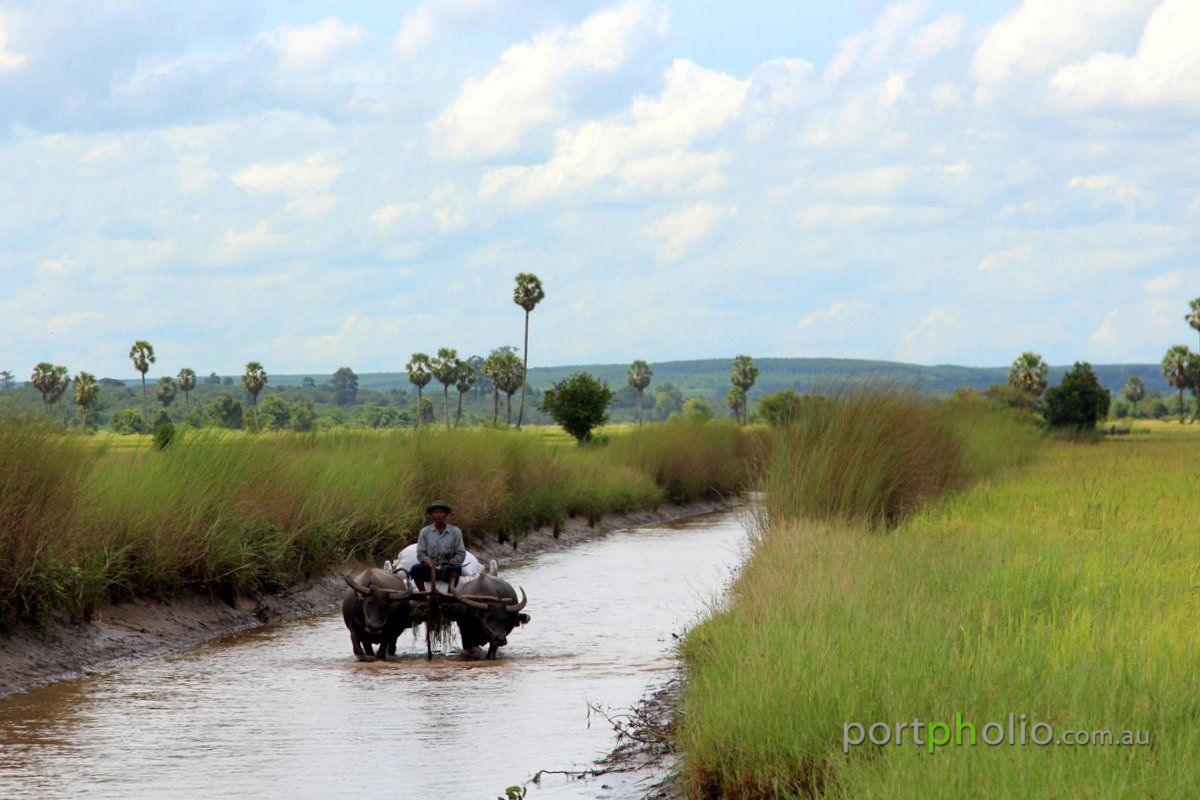The Road from Kompong Thom to Phnom Penh, is better (and busier) than many in Cambodia and packed full with thibngs ti see and photograph. A couple of the memorable stops on this journey are highlighted below :
Hmmmm, Fried Taranatulas
Like most subsistence farming communities throughout the world, rural Cambodians make the most of everything they come across – this includes such things as making their houses out of local raw materials, that they can grow, cut and fashion themselves, to using the paddy fields to farm fishing, and eating anything and everything that provides sustenance. Snakes are a particular delicacy apparently – which is why they are very rare – any that are discovered are quickly captured cooked and eaten.
In this particular area, the farming of Tarantula spiders is quite common and road side stalls abound with people selling a variety of fried (and heavily dripping with oil) insects and other creatures. At this stop we found not only fried spiders (which Nathan “had” to eat of course), but also, tiny birds, grasshoppers, crickets, and stuffed fried frogs. Throughout Cambodia the local kids are adept at getting your attention and “coaxing” you into buying something from them … for the most part they are not too pushy (as they can be in other Asian countries), but many have developed a very “sad” look when you start to drive off without buying anything like you “promised”. On this occasion the look of horror that we hadn’t bought some bananas from a couple of local kids was priceless.
Brick Factory
We spotted many brick factories throughout Cambodia, so decoded to drop into one to see how they operated. This one was larger than most, but still a very manual process (mostly carried out by women). Local clay is mixed with water to the correct consistency and then forced though a machine to mold the brock shape – which is then cut into suitable lengths, and stacked to dry a bit before loading into the kilns.
Kilns are all wood fired, and the “green” bricks are stacked in, amongst piles of wood, then sealed off (the openings are bricked up and sealed with month), before being set alight and left to “bake for a few days. Then, after a few day cooling, they are pulled out of the kilns, loaded onto trucks and sent off to be sold (the wholesale price is 0.20c each). The kilns are swept, cleaned and then the whole process starts again.























